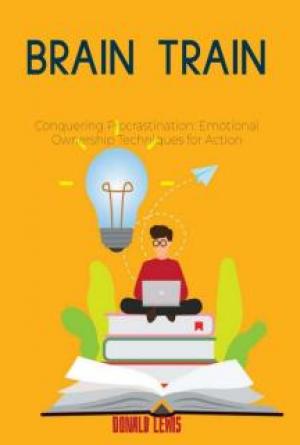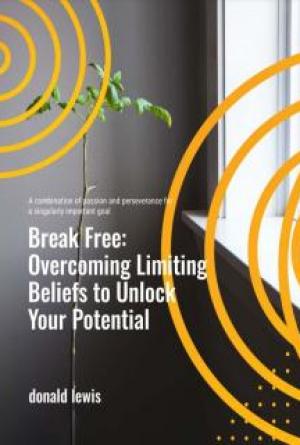CHAPTER TWELVE
The Money Mind – Comfort James
Popular definitions of money centres on it being an item used as a medium of exchange, a unit of account, a store of value and a standard of deferred payment. For Mind Quest, majority of the focus will be on VALUE, Money as a store of Value.
Importance of money
- You are able to carry out exchange of resources.
- You can buy what we need.
- You can help or assist another.
There is nothing wrong with desiring to have money. Money answers all things as recorded in the bible. With money, you can get so many things done on earth. There is however a caveat here: money can be abused by both some people that have it in abundance and some that don't have it in abundance. As the saying goes, “when the purpose of a thing is not known, abuse is INEVITABLE.”
The reason why many abuse money is because they don't know the purpose of money. There is a difference between the purpose of money and the importance of money.
The essence of money mind
The mind is not restricted to thoughts without money. As a simple exercise, think about the times you were broke and see what you thought about then. Money triggers thoughts, both having money and not having money triggers thoughts. You cannot stay neutral with this knowledge.
Abuse of Money
Abuse means "misuse" of something. As mentioned earlier, money can be abused by some people that have it in abundance and some that don't have it in abundance.
There are two aspects that will be considered as mentioned above:
- Abuse by some that have it in abundance
- Abuse by some that don't have it in abundance
School of thought (some that have it in abundance)
- There is enough money so financial intelligence isn't found here.
- It’s all about the moment.
- Life is short, enjoy it while you can.
One thing the people in this category might be getting wrong is that they may think making people feel good all because they spend money freely symbolizes fulfillment. They don't necessarily have to be selfish. Bottom line is value is not stored.
School of thought (some that don't have it in abundance) - I don't have money is I don't have money.
- There is no drive to make money.
- Money is evil, I don't want it to corrupt me.
- I just want some money to cater for immediate needs.
You can find yourself in these two categories in one way or another. Hence, there is no better than the other category. One of the money problems we have in the world today is this: People measure their worth by the size of their pockets (basically what they think they have). Having known this, what happens to those that don't have it at all? It is not possible to not have money at all. When a person who doesn't have physical cash performs a task that eases a burden or solves a problem, this is equated to Money. There are two thought patterns here:
Wrong thinking: it's all about doing this and getting quick cash.
Right thinking: because I am doing the right thing, I do not lack money.
A house that is built without a foundation is going to fall either ways and by all means. Therefore, one remedy that abusing money needs is understanding and maximizing the purpose of money.
The purpose of money
- It is good to be able to acquire things with money.
- It is fulfilling when the things acquired are important and necessary.
- It is much more fulfilling when the things acquired remains for posterity.
Ultimately, Money is a store of value.
Theoretically, general knowledge will streamline the purpose of money to mean the importance of money as follows:
- We are able to carry out exchange of resources
- We can buy what we need - We can help another.
But a much deeper level will streamline the purpose of money to what it stands for. So, principally, the purpose of money is to Store Value.
Action point:
Take a look at what you've been using money for and see if value's been created overtime.
If the result of the evaluation is below average, there is a problem.
Performing this evaluation doesn’t mean that you’re banned from buying things. Your evaluation shouldn’t be limited to spending patterns. That is not all there is to money. Money never goes away, it moves from hand to hand. It is important to satisfy a “need” as the name goes. There has to be a need before spending. Difference between Need and Want:
Need - permanent
Want - temporal
Understanding and maximizing the purpose of money In storing value, consider the following:
- Invest, partner with a good course channeled within the area of your strength. This will go so well provided the condition is met - what is to be done must be channeled within the area of your strength. Sometimes you need to partner with people you trust, no matter how small you start with. There can be risks involved and this will showcase when something isn't done right or something goes wrong.
- Don't be excessively money driven: All because you want to make more money, don't get involved in schemes that don’t benefit you. No matter how sweet the deal is presented. Take another look at it basically.
- Charity: This is good but be wise about it. We live in a world where people take advantage of one another. As long as they are after what they want, every other person's feelings doesn't matter.
GIVING
Giving is a very broad phenomenon... It's way beyond what the human mind can explain... It is huge!!!
Giving means to cause or allow something (valued or needed) to go to another person, group etc...
From the definition of giving as stated above:
- Giving cannot take place without your permission
- You can give what you value or need
Importance of giving
- You were "given" to "give" (like saying you are blessed to be a blessing).
- There's always a need to be met around you.
- You are sowing seeds by giving.
Mindsets of giving
Money is always the first thing that comes to mind when the subject of giving is talked about. This shouldn’t be, the mindsets highlighted below explains this better:
- I am not Father Christmas.
- I cannot give what I don't have.
- What will I get in return?
- I must give for recognition.
- I love to help people.
- It's okay to put people first before considering myself.
With the mindsets above, one thing is common still - MONEY.
There are things you can give other than money, namely: time, listening ears, smile, part of your belongings and so on.
Dangers of giving
- Giving at your own detriment.
- Giving for a wrong cause.
- Giving without looking for potential in the receiver (like the saying, "teach a man how to fish; don't give him fish all the time...").
- Focusing on what you will gain in return for giving.
- Giving for recognition.
In giving, you must learn to say NO without feeling bad. Learn to take a moment before making a quick move. Utilize the existence of your conscience.
Question to ponder
What will you do with One million (use any currency of your choice) if you had it now?
Your answer can reveal any of the following:
- It is not enough to cover what I'll use it for.
- It will cover the cost for my new business idea.
- I'd invest in myself: school, go abroad, start all over...
- I'd give some people a share of it and use the rest. But for what? Still thinking.
As regards the first answer, just one question will address it: who told you so?
For the second answer, there's a risk in view because what drives your passion (your area of strength may not have been taken into consideration here).
For the third, not bad but what happens after you make the move?
And the fourth, don't be penny wise and pound foolish.
No amount of money is ever enough for man; because human wants are insatiable.
It’s a good thing when a lump sum of money is given to you. Get excited, be happy about it but don't be quick to make decisions on how to use it. EVEN IF YOU HAVE
THE PIECES TOGETHER.
The End… APPRECIATION
A very big thank you to the Mind Quest Team for coming on board thereby making this journey worthwhile; your commitment is highly appreciated. Thank you for staying through. Angela Chukwu, Biola Adesemoye, Chinenye Nwanna, Constance, Cynthia Oyegunle, Deborah Ashaye, Frances Ileleji, Gift Onyewuchi, Grace Neko, Jane Owen, Kosy Obiagwu, Kristin Ohiaegbunem, Mary Eghaghe, Dorcas David, Ngozika Onwukwe, Nike Aruwajoye, Sandra Adevokhai, Temitope Adesemoye, Tina Palmer, Anthonia Wabara and Ucha Onwuka. I celebrate you all.
I’m particularly grateful to my Co-facilitators: Deborah Ashaye, Nike Aruwajoye, Chinenye Nwanna, Gift Onyewuchi and Grace Neko. Your contributions made the difference! Thank you, I appreciate you all.







